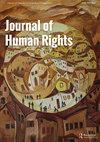How closing civil society space affects NGO-Government interactions
IF 1.6
2区 社会学
Q3 INTERNATIONAL RELATIONS
引用次数: 2
Abstract
Abstract A crackdown on the activities of nongovernmental organizations (NGOs) has recently swept the globe. When faced with increased restrictions, how do NGOs respond? We argue there is a curvilinear relationship between increases in NGO repression and the conflict-to-cooperative nature of NGO interactions with a government. On one end of the spectrum, when civil society repression is limited or nonexistent, NGOs have many reasons to be cooperative with the government. As NGO repression increases, we should see NGOs take more of a conflictual stance, publicly voicing their displeasure and bringing attention to the abuses and deficiencies they see within the regime. As NGO repression continues to increase, however, there will be a tipping point at which the NGOs that remain in the country will once again take a more cooperative tack with the government. We use a quantitative event data approach to examine the implications of our arguments.关闭民间社会空间如何影响非政府组织与政府的互动
最近,对非政府组织(ngo)活动的打压席卷全球。面对越来越多的限制,非政府组织如何应对?我们认为,非政府组织受压制的增加与非政府组织与政府互动的冲突-合作性质之间存在曲线关系。一方面,当公民社会受到的压制有限或不存在时,非政府组织有很多理由与政府合作。随着对非政府组织的镇压增加,我们应该看到非政府组织采取更多的冲突立场,公开表达他们的不满,并关注他们在政权内部看到的滥用和缺陷。然而,随着对非政府组织的镇压继续增加,将会有一个转折点,留在该国的非政府组织将再次与政府采取更加合作的策略。我们使用定量事件数据方法来检验我们的论点的含义。
本文章由计算机程序翻译,如有差异,请以英文原文为准。
求助全文
约1分钟内获得全文
求助全文

 求助内容:
求助内容: 应助结果提醒方式:
应助结果提醒方式:


